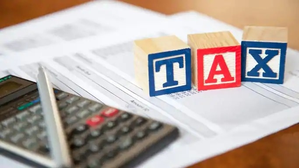Explainer: Tax-free limit of Rs 12 lakh excludes special income
By IANS | Updated: August 16, 2025 18:35 IST2025-08-16T18:26:09+5:302025-08-16T18:35:11+5:30
New Delhi, Aug 16 The government announced in the Union Budget 2025-26 that income up to Rs 12.75 ...

Explainer: Tax-free limit of Rs 12 lakh excludes special income
New Delhi, Aug 16 The government announced in the Union Budget 2025-26 that income up to Rs 12.75 lakh, with a standard deduction of Rs 75,000, will be tax-free under the new tax regime.
However, taxpayers should be aware that short-term capital gains and long-term capital gains tax cannot be included in the total income eligible for a full waiver.
The Finance Act, 2025, clarified that the rebate under Section 87A is not available for income taxed at special rates. A taxpayer cannot apply the Section 87A rebate against tax liability from income taxed at special rates, such as short-term capital gains under Section 111A or long-term capital gains under Section 112A.
But analysts have noted that this removal of the Section 87A tax rebate benefit was done through an amendment introduced in Budget 2025, which should only be effective from FY 2025-26 (AY 2026-27) onwards. Currently, Section 87A rebate on special rate incomes is not being granted for FY 2024-25 (AY 2025-26), they noted.
For the unversed, for AY 2025-26, taxpayers with an annual total income of up to Rs 7 lakh qualify for the Section 87A rebate under the new tax regime, while those with an income of up to Rs 5 lakh qualify under the old tax regime. In this context, a taxpayer's total income is calculated by excluding exempt income and applying allowable deductions, including the standard deduction for salary or pension income.
Applying the Section 87A tax rebate to incomes up to the limits mentioned above should result in a net tax liability of zero.
The current Income Tax Return utility, however, does not permit the Section 87A rebate on tax calculated for such special rate income for FY 2024-25. So individuals with a total income under Rs 7 lakh may still incur a tax liability if their earnings primarily come from special-rate capital gains. Analysts waited for the Income Tax Department to provide further clarification on whether the law will take retrospective effect from FY 2024-25.
Disclaimer: This post has been auto-published from an agency feed without any modifications to the text and has not been reviewed by an editor
Open in app